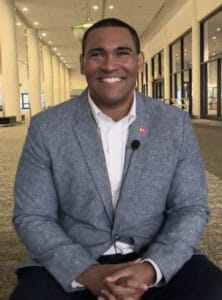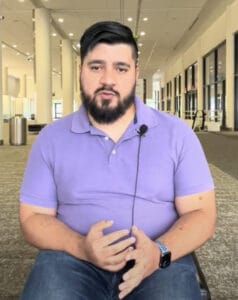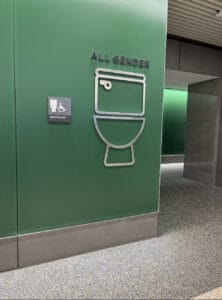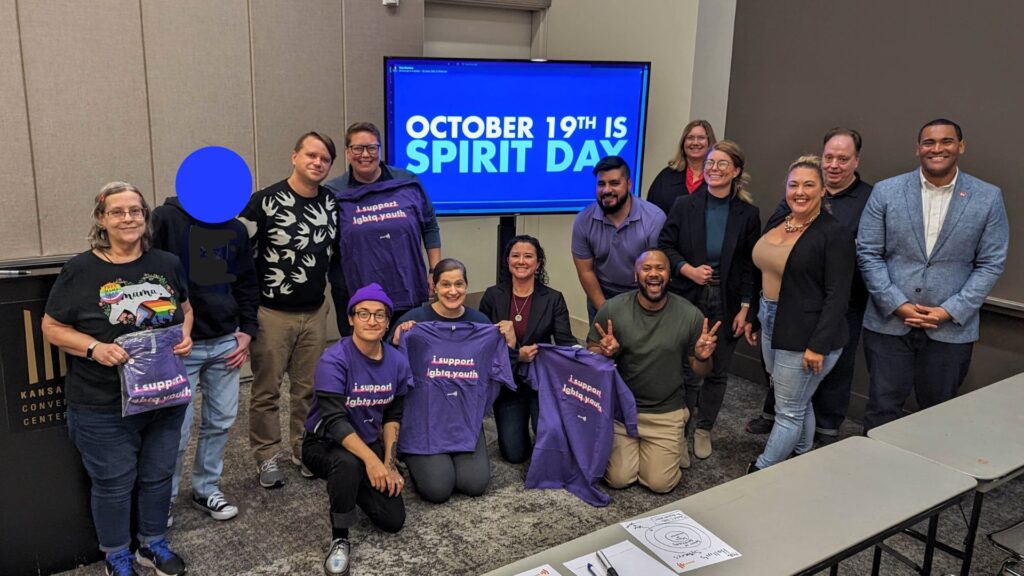When the GLAAD Media Institute (GMI) visited Kansas City, Missouri on Oct. 14 to facilitate a multimedia workshop called Telling Your Story: Messaging & Media Tools for Today’s Activist Justice Horn said something that had the room snapping in agreement.
“National organizations don’t visit cities like Kansas City or Tulsa, so for GLAAD to be here means a lot to the LGBTQ community of Missouri,” said Horn, the chair for the LGBTQ Commission of Kansas City. Horn said that because states like Missouri and Oklahoma are fully locked anti-LGBTQ states, they’re over looked.

It’s true. The “Show-Me” state introduced the highest quantity of anti-equality laws (48) this year next to Texas (54), according to the American Civil Liberties Union (ACLU).
“I think at the basis it’s ensuring that both youth to adult, members of our community, aren’t going to be bullied; that’s with slurs to legislation, to policy. What we are doing here in Kansas City is making an environment where none of that is welcome, that everyone is affirmed and accepted here in Kansas City,” Horn said. “I think this sets a tone of what’s important, and that’s ensuring everyone is welcome here in our community.”
However, no matter what’s at stake, Kansas City’s LGBTQ advocates and public officials will continue to organize for the LGBTQ people of their state and beyond. For instance, this May, Kansas City Council declared itself a “Sanctuary State” for transgender medical care, before the state’s trans medical ban for youth under 18 took effect in late August. The state also legalized discrimination against trans athletes’ participation in school sports.
Both laws would have directly affected a college student (who asked to remain anonymous in this article for privacy and safety concerns), if not for the city’s actions. Xe came to the media workshop to learn how to better tell xyr story.
“When I first came out as a transgender man, I didn’t really know that much about the LGBTQ community as a whole. I didn’t really know the strife, the things that they go through on a day-to-day basis, the things they have to watch out for when they are walking down the street,” said the Missouri college student.
The student says xey were surprised when xey first experienced discrimination for being trans, the student did not expect it. That’s when it became clear to the student that a lack of news coverage on the day-to-day harms experienced by LGBTQ people could have severe consequences.
“I wanted to gain the resources to know how to speak that and make sure I can make an impact, and put my view points out there and what I want to say out there, and what I want people to know about my own story out there in a way that’s going to help people understand,” the student continued.
Other advocates, parents, teachers, and city officials expressed this concern. They worried about how the news media in Missouri encourages discrimination against people in a time where stories like the anonymous student’s above are important for other trans and queer youth.
People said they look to local news stations like ABC 9 and KSHB, and alternative news like the Kansas City Beacon, Kansas Public Radio, Kansas Reflector, and Missouri Independent.
“You can’t trust any of the media [in Missouri],” one participant could be heard saying in the back of the room.
This statement about distrust in the media speaks to the concerns of Alvaro Ontiveros Aguilar – an advisor to the city on the LGBTQ Commission of Kansas City.

“My biggest concern for LGBTQ equality in Kansas City and Missouri overall is having legislative protection for my community,” said Ontiveros Aguilar to GLAAD after the training. “My first task on the commission has been to try and spearhead a movement to get a hate crime ordinance added on to our municipal codes. That is one of my biggest passions and largest concerns.”
Ontiveros Aguilar says the ordinance would define “hate crime” and “gives prosecutors the tools to enforce municipal law to protect victims of hate crimes,” reported KCTV CBS 5.
Overall, the more people shared their stories, the more they told GLAAD that they are doing what the state refuses to do, create safety and equality for not just the LGBTQ community, but the many communities that make up the LGBTQ community too.
In the last six years alone, Kansas City’s City Council has established practices and policies that keep people safe like banning conversion therapy (2019), establishing an LGBTQ employee resource group (2018), establishing an all-gender restroom policy for city buildings (2021), and so much more.
Editor’s note: names were changed in this article for privacy and protection.

More on the GLAAD Media Institute: Using the best practices, tools, and techniques we’ve perfected over the past 30 years, the GLAAD Media Institute turns education into armor for today’s culture war—transforming individuals into compelling storytellers, media-savvy navigators, and mighty ambassadors whose voices break through the noise and incite real change.













